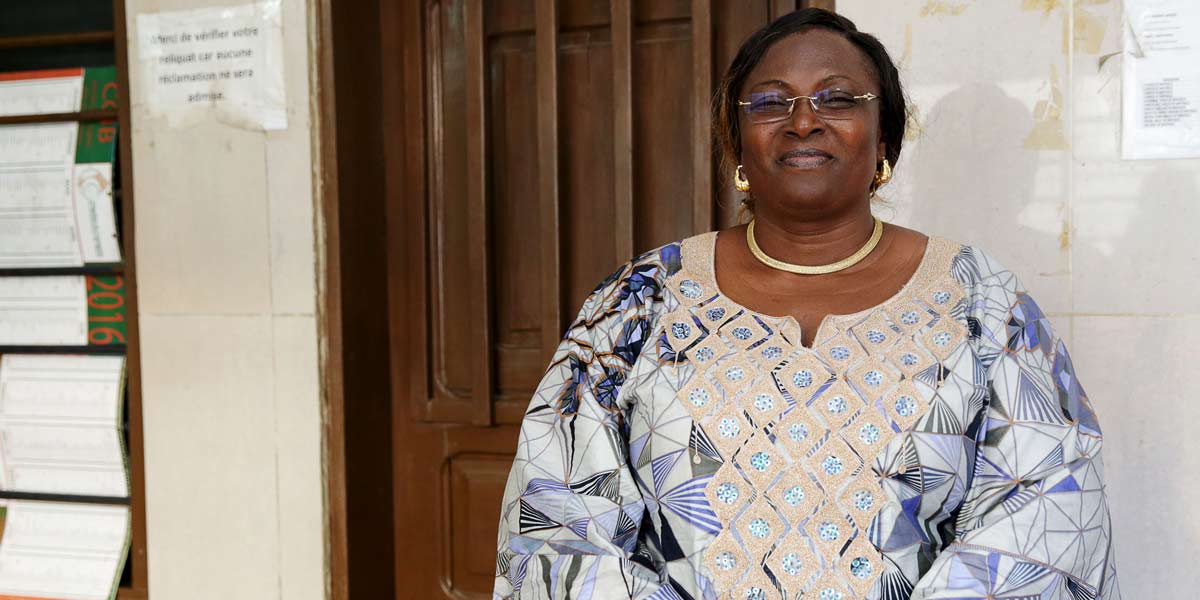Bass, red carp and sardine are among the wide variety of fish that fill the cold storage rooms of a small business owned by a female entrepreneur in Cotonou, Benin. AWA Fish, named after its proprietor, Madame Awahou Codjo, serves as a link between more than 400 fishing families and Benin’s active retail fish markets.
MCC’s Benin Compact, completed in 2011, helped Codjo grow her business by financing the purchase of two walk-in freezers, one generator and two motorized boats, along with training in accounting and related software.

MCC
Madame Awahou Codjo is a small business owner in Cotonou who benefitted from MCC’s 2006 investments in Benin. Now, she stands to benefit from MCC’s $375 million Benin Power Compact.
Access to finance is cited as one of the top obstacles to doing business in Benin, particularly for women. Although Benin has many women-owned businesses in a variety of sectors from agriculture to crafts, the vast majority of them are small and not formally registered. Registered businesses such as AWA Fish provide critical tax revenue for the Government of Benin, which is unable to fully capture business tax revenue due to the country’s large informal sector.
For AWA Fish, MCC’s investment has meant room to grow: the business has more than doubled its storage capacity, from 170 tons in 2009 to 500 tons today, and has established greater credibility with local banks. In 2009, the business had a revolving line of credit of up to $80,000; today, that line of credit has doubled.
“We have increased our storage capacity,” Codjo said. “We have new employees. We have better information. We have better visibility with financial institutions.”
AWA Fish has also established better terms with a national network of fishing families. Before MCC’s investment, suppliers would not deliver fish without agreeing on the price first and they usually demanded immediate payment. With increased storage capacity, Codjo is now able to negotiate the price of fish the day after delivery and make payments days after that. And some of AWA Fish’s suppliers have even increased their catches.
For Codjo and other entrepreneurs in Benin, MCC’s investment in a strengthened power sector will help to reduce electricity imports — which account for approximately 90 percent of total power consumption — boost opportunities for growth, and provide a stable source of power in what has long been an unstable system strained by daily power outages.
Codjo, who faces regular power blackouts, overstressed generators and freezers, and the threat of fire, keeps her electrician on speed dial. She foresees the economic advantages of a more reliable grid for her operation.
“If I have better access to electricity, it will allow me to earn more money,” she said, “because the money we are throwing toward buying a new generator, to repair this and to repair that, we won’t need to spend.”

